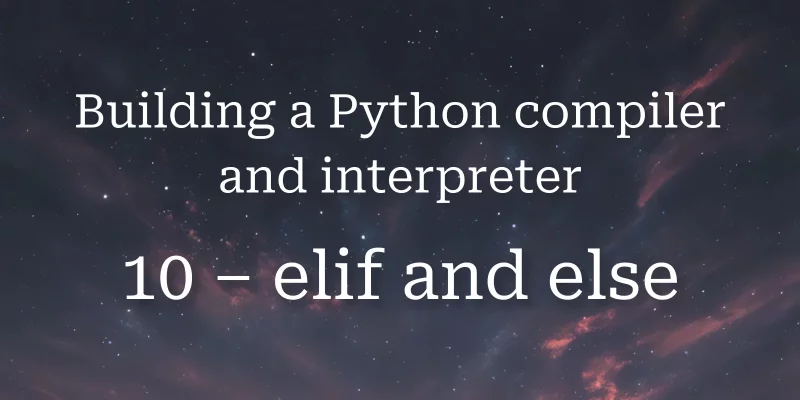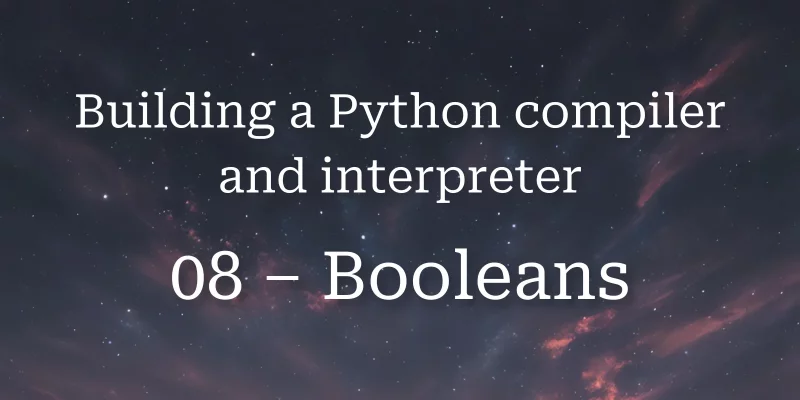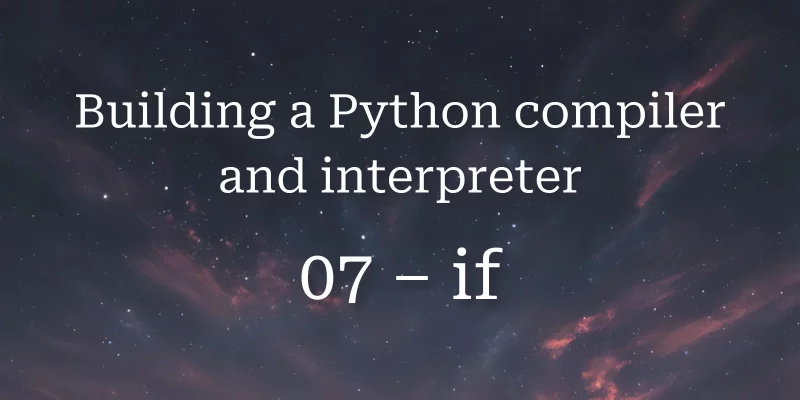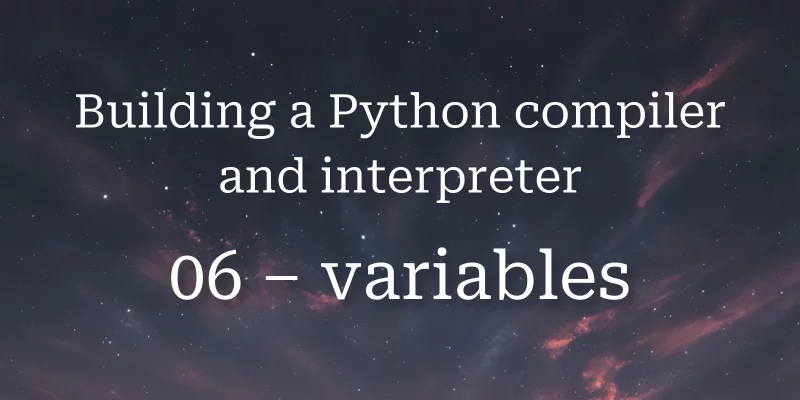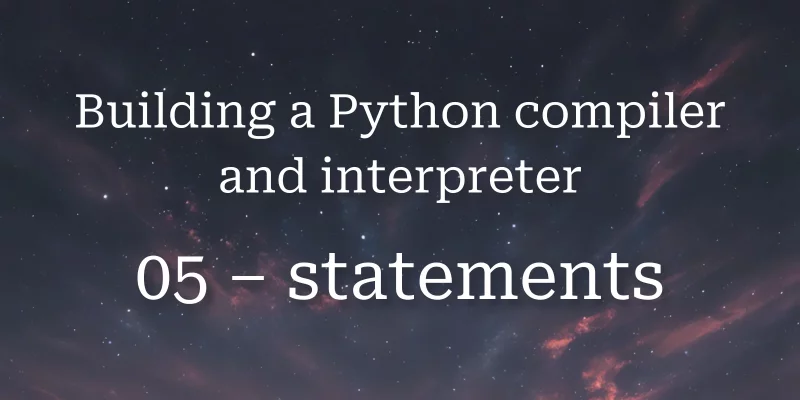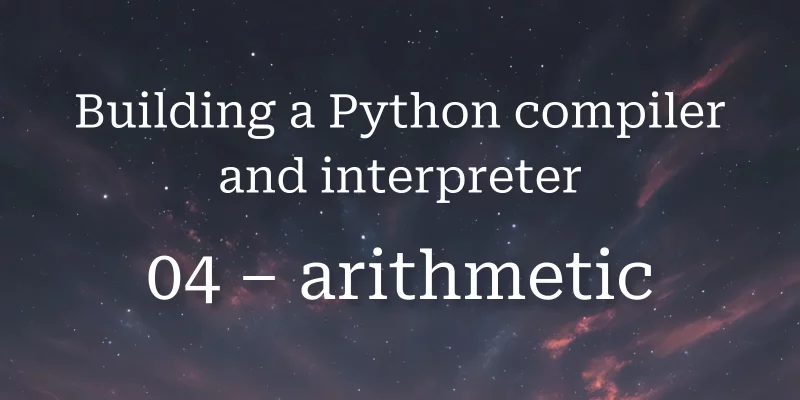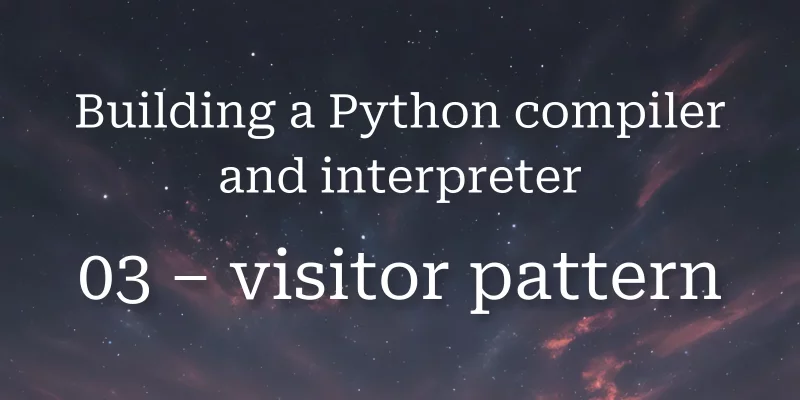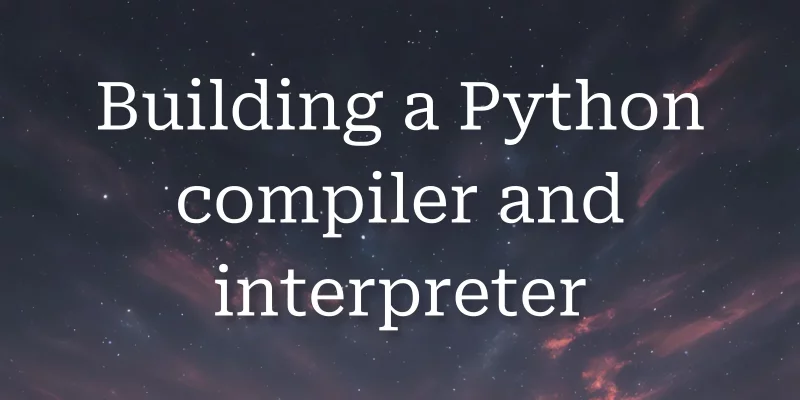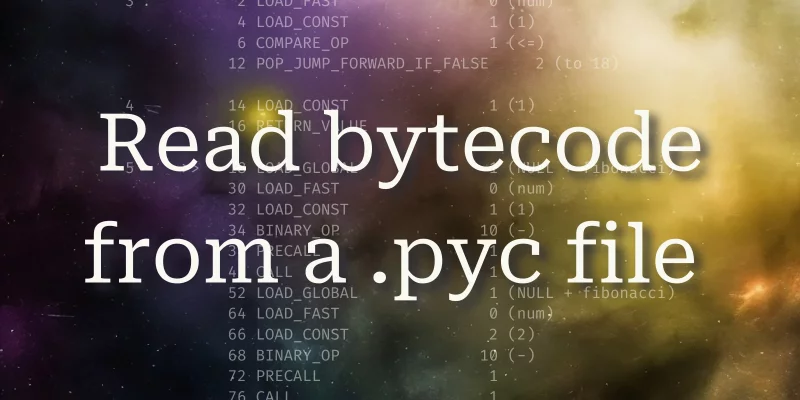The 10th article of this series adds support for elif and else statements.
In the 9th part of this series of building a Python compiler and interpreter we will add support for Boolean operators and Boolean short-circuiting.
In the 8th part of this series of building a Python compiler and interpreter we will add support for Boolean literals and Boolean operators.
In the 7th part of this series of building a Python compiler and interpreter we will add support for if statements.
In the 6th part of this series of building a Python compiler and interpreter we will add support for variables, simple assignments, and chained assignments.
In the 5th part of this series of building a Python compiler and interpreter we will add support for multiple statements in our program.
In the 4th part of this series of building a Python compiler and interpreter we will add support for more arithmetic operations and parenthesised expressions.
In the third part of this series of building a Python compiler and interpreter we will make our parser, compiler, and interpreter, much more flexible with the visitor pattern.
In this tutorial series we will build a Python compiler and interpreter from scratch. We start with simple arithmetic expressions.
ALL Python functions return something and this article explains how and why.
Today I learned how to read the bytecode from a file of compiled Python bytecode (.pyc).
